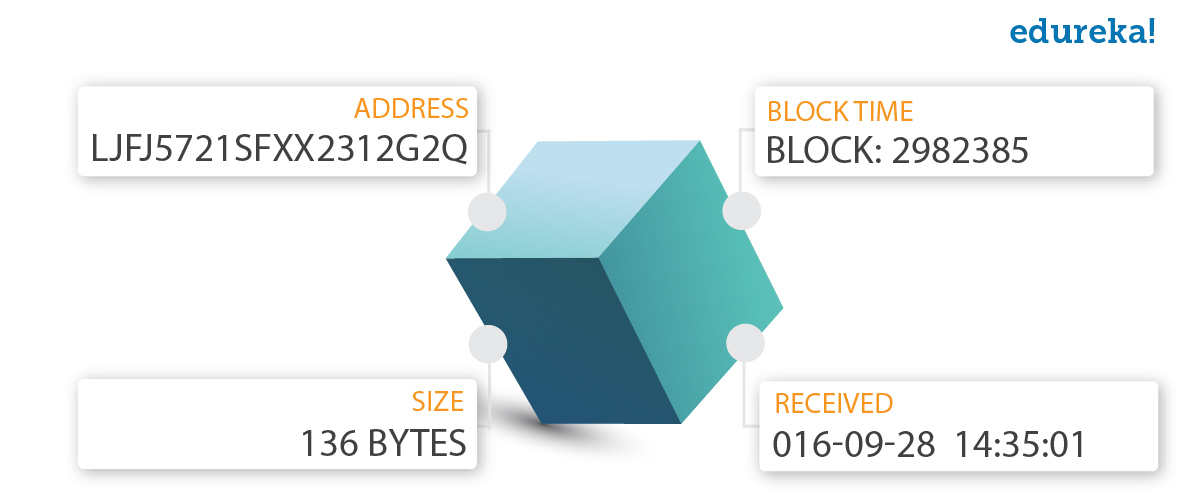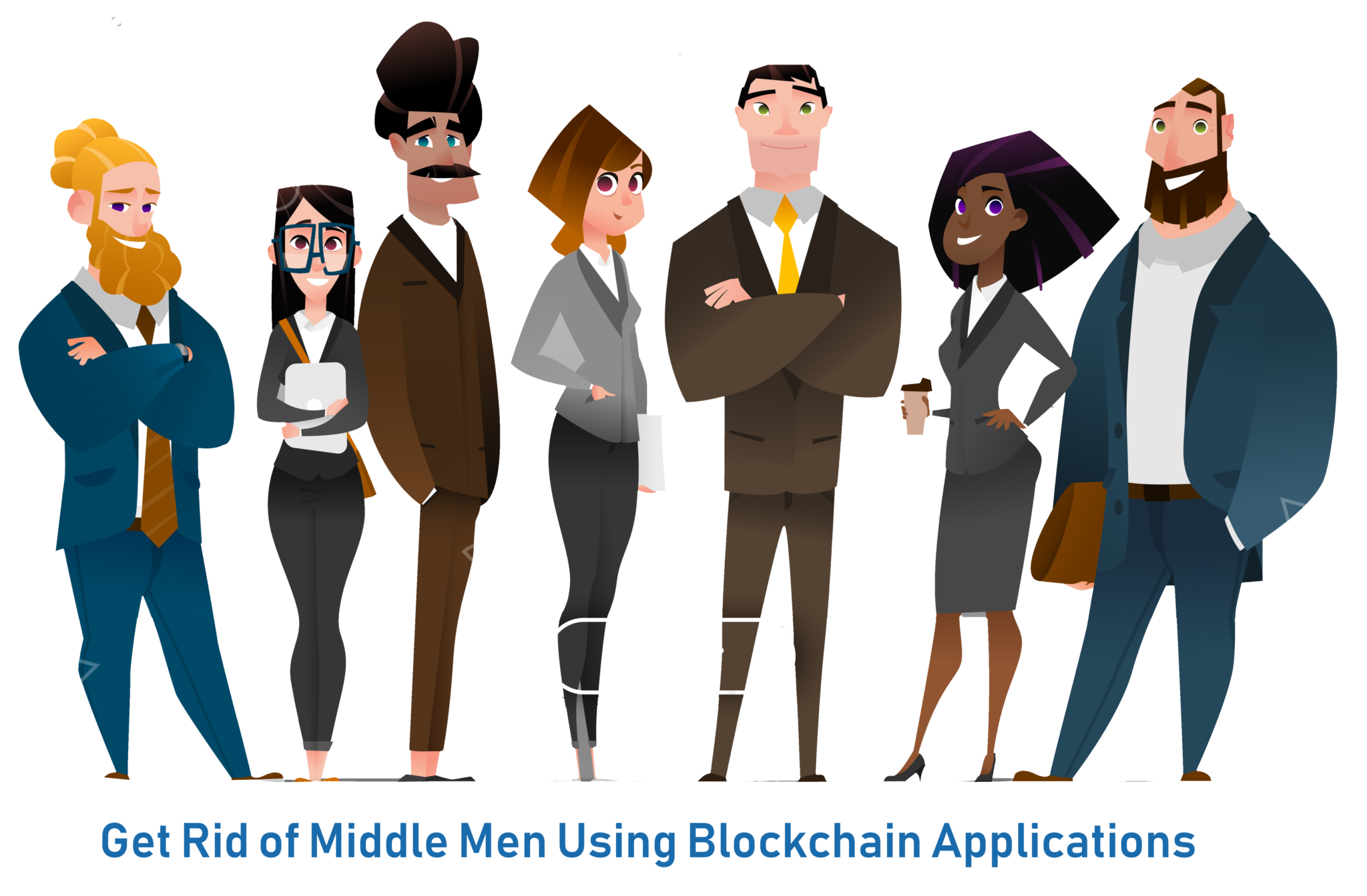Blockchain Developer Certification Course
- 25k Enrolled Learners
- Weekend
- Self Paced
Blockchain – The technology of trust. Blockchain applications have the potential to change the way we transact, interact with government and verify the authenticity of goods, ranging from land to vegetables. It combines the power of the internet with the security of advanced cryptography to provide a faster, safer way to verify key information and establish trust. Originally devised for the digital currency, the tech community is now finding other potential uses for the technology. Blockchain, at heart, is a record of transactions. These transactions can be any movement of money, goods, secure data or assignment of a government ID number.
Before we begin, let me just list out the topics I’ll be covering through the course of this blog.
Key Characteristics of Blockchain Applications
What Makes Blockchain Applications Suitable for Business?

By storing data across a Blockchain network, it eliminates the risks that come with a centralized data network, such as the possibilities that a computer hacker can exploit. Blockchain security methods use encryption technology. Publicly accessible results bring transparency to any kind of poll taking. Consumers are concerned to know that the ethical claims made by companies about their products are true. Blockchain provides a way to certify the authenticity of the things you buy.
Whatever industry you might be working in, blockchain has the potential to be a fitting entry to revolutionize the way things are authenticated in any system. Below is a list of blockchain applications that I have compiled. These applications generally serve a different purpose but might belong to similar domains, for example, healthcare and finance.
Land Registry
A future-proof, Blockchain real estate market is building up new business models of connecting potential buyers and sellers. In Blockchain solution, there is no need of third-party, lawyers and brokers. Ubiquity joined with the real estate register office in Brazil and developed the project which aims to reduce cost while improving, security and transparency. Ubiquity seeks to great immutability to property ownership data handled by the land records office. It is an effort to move away from paper-based records towards 100% computer-based solution. Records stored on Blockchain are immutable. Also, Sweden government partners with ChromaWay to test the possibility of a Blockchain based land registry.
Insurance
The first thing which comes to my mind when I think about insurance claim is increasing fraudulent claims. Existing claims processes potentially have high complexity, extended timeframes, and inconvenience, which can create customer friction and a gap of trust between different parties. Everledger has come up with a delivering breakthrough Blockchain solution to industries where transparency, trust, and provenance valued most.
Voting
There are always doubts about the voting system ability to secure data and defend against potential attacks. Every single vote has a big impact on a country. Agora provided a Blockchain voting platform to ensure transparent and verifiable elections around the world. Agora’s partnership with the Sierra Leone election was a proof-of-concept experiment. And the interesting part is, both results from government officials and experiment had the same results.
Ride Sharing
Nowadays, sharing a ride is common. Passengers pay driver with either cash or credit. How about digital currency? LaZooz is a real-time ridesharing service, powered by Blockchain. It synchronizes vacant seats with passengers in real time, based on their location. By using cryptocurrency technology La`Zooz works with a “Fair Share” rewarding mechanism for driver and passengers.

Ever wondered about the integrity of the food you are eating, where it comes from and how it’s made? With Provenance, you can track the journey of fresh produce from source to the shop in real time. As such, you can know if the chicken chop is infected since you know the origin. Provenance equips physical products with a unique ID that enables the tracking of each item. With that ID, you can check the secure digital history, along with verified claims made by a company, enriched with content from along the supply chain. Blockchain System means greater levels of confidentiality and security which reduces the overhead of achieving regulatory compliance.
Patient Data Management
In the healthcare sector, critical patient data and information remains scattered across different departments and systems. Due to this, crucial data is not accessible and easily available at the time of need. Patientory is empowering people to take charge of their own health. Patientory is a Blockchain solution that provides personal healthcare solution to store and manage health information. They connect doctors, care providers, and consumers all within a single, secure Blockchain platform, creating a team that works together to provide the best care.
Drug Traceability
You wouldn’t tell if the medicine is genuine until you put it inside your stomach. Blockverify provides a Blockchain solution to track pharmaceuticals throughout the supply chain to ensure, consumers receive an authentic product. Blockverify offers a transparent environment where it is not possible to duplicate products and it can track fraudulent transactions of any type throughout the system. The system creates immutable records to ensure data integrity, also, by using smart contracts it automates processes leading to significant cost savings for its customers.
Commercial Financing
The current lending industry is inefficient, especially with lots of documents to fill up. Now, both borrowers and lenders are connected all over the world through Blockchain. Lendoit is disrupting the traditional lending industry, all without giving the bank their cut. As lenders, you can remain completely anonymous without being required to register anywhere. Select your preferred loan from the marketplace. Next is to initiate from your wallets. Borrowers connected to the platform will pay the loan in a low- interest environment.
Trade Financing
As of now, trade finance is a complex process. Various parties from exporters, importers, banks, transporters, shippers, customs agents, and regulators all require checks and verifications at various points of the process. Each interlocking part of the process depends on the successful completion of the previous phase and on reliable information. Creating a blockchain trade finance ecosystem means combining all the different stages of a trade, from production to end-delivery including on-boarding other banks, regulators, customs and all parts of the trade cycle.
Batavia has used a Blockchain based solution and designed to support more efficient, transparent, secure and cost-effective transactions with the idea to simplify the trade finance process by moving away from the trade finance sector’s reliance on paper-based records. It eliminates the necessity to handle and compare documents, allowing buyers, sellers, and the banks to execute transactions with efficiency and transparency. Recently, Indian ICICI bank announced it has successfully on-boarded over 250 corporates on the bank’s blockchain application. The idea behind it is to experience a more time and cost efficient and secure way of undertaking domestic & international trade transactions through Blockchain platform.
Cross-border transactions
Blockchain as a solution to financial institutions and banks is to offer near-instant cross-border payments at lower costs, higher security and more reliability. With Blockchain, payments are immutable and accurate, costs associated with the investigation of cases and litigation are also getting trim. Axoni’s blockchain platform provides fully synchronized integration with third-party market data providers. It serves as the underlying framework to share and synchronize data between systems and financial institutions while maintaining the privacy, scalability, and the audit required for capital markets.
All these blockchain applications are allowing people to secure digital relationships in a way that was impossible before. Data is being shared differently, secured differently and stored differently. Smart contracts are changing digital relationships, creating the ability for them to be automated in code. Looking at Blockchain projects, we can understand that Blockchain technology isn’t going to disappear. It has come to completely transform our economy and society to better.
If you wish to learn more about Blockchain Applications and build a career in Blockchain Technologies, then check out our Blockchain Course which comes with live instructor-led training and real-life project experience. This training will help you understand What is Blockchain in an exhaustive manner and help you achieve mastery over the subject.
Got a question or doubts for us? Please mention it in the comments section of this “Blockchain Applications” blog and we will get back to you as soon as possible.
 Thank you for registering Join Edureka Meetup community for 100+ Free Webinars each month JOIN MEETUP GROUP
Thank you for registering Join Edureka Meetup community for 100+ Free Webinars each month JOIN MEETUP GROUPedureka.co
Hi Ankur good article .Let me know your thoughts on below.
1. Does blockchain whether it is hyperledger or public blockchains like ethereum will ever meet the scaling problems currently they have?
2. With the death of ethereum classic “ETC” and changing the code to form new fork to fix this, how safe is to trust the code and the blockchain? The same applies to bitcoin fork!
3. With problem what ethereum and bitcoins have in public world mentioned above ,Will block chain remain as a hype or does it even prove to be realistic to use for the “ideal” world and when?